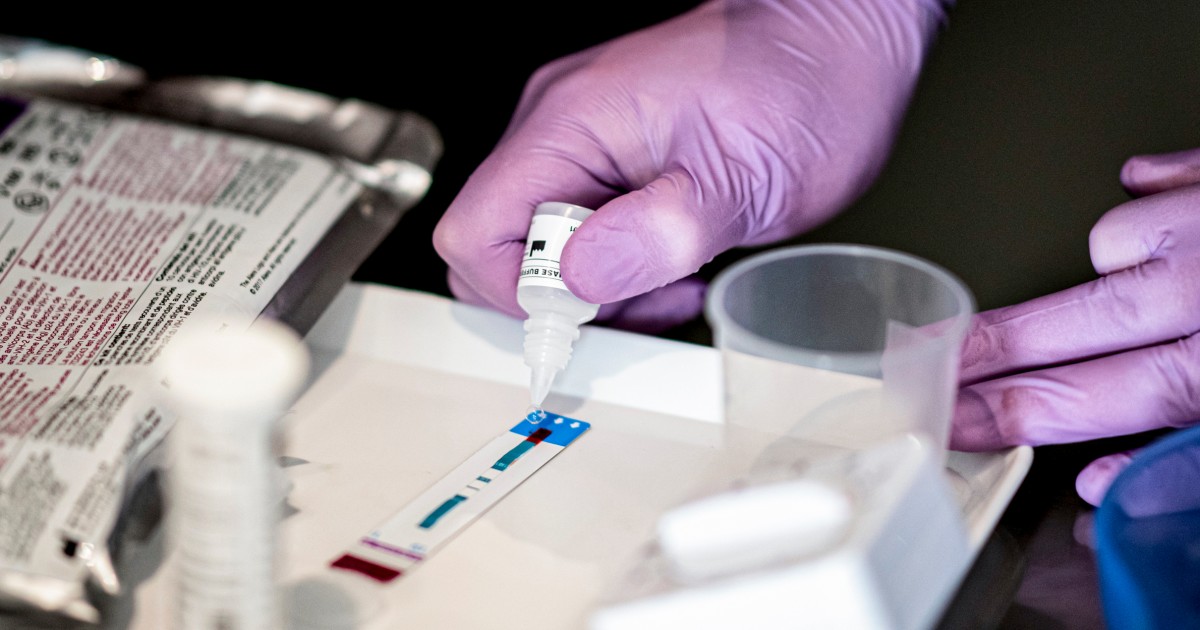Safe Valentine's Day?
This is how you will protect yourself from sexually transmitted diseases
Contrary to what many think in recent years, there has actually been an increase in the incidence of sexually transmitted diseases, for all kinds of reasons.
So how can you avoid getting infected and how can you recognize that you might have been infected after all? A doctor explains
Dr. David Shesha
11/08/2022
Thursday, August 11, 2022, 4:38 p.m
Share on Facebook
Share on WhatsApp
Share on Twitter
Share by email
Share in general
Comments
Comments
Helps, but not always.
A woman holding a condom (Photo: ShutterStock, Estrada Anton)
The merry 60's and 70's, some would say carefree, were characterized by free sex, and consequently also a high incidence of sexually transmitted infections.
From then until today, we have come a long way when it comes to safe sex education, and today there is a higher awareness that starts with education for healthy and correct sexuality already at school age, and a lot of information is presented without filters throughout the web and social networks.
Apparently, we would have expected that today the downward trend in the number of people infected with sexually transmitted diseases would continue, but surprisingly in recent years there has been an increase, and some infections have doubled and even tripled in frequency in the last decade.
One of the main reasons for the increase in the incidence of these infections is the prevailing openness in society towards sex in general, as well as casual sex, multiple alternating partners, and more.
Today it is easy to find a partner(s) for sex online or in a bar, and with the increase in the number of partners, the exposure and risk of transmitting the same infections from one to another increases.
Also the decreasing fear of AIDS (and rightly so, it is a disease that has an effective and simple treatment, and people living with HIV have a life expectancy similar to people without HIV) contributes to a decrease in condom use and an increase in exposure and risk of contracting various sexually transmitted diseases.
Safe sex is not just a condom.
Spouses having sex (Photo: ShutterStock)
The term "sexually transmitted diseases" is a very general concept, which includes a wide variety of diagnoses, all of which have in common the fact that the infection is caused by sexual contact.
Many women mistakenly believe that they are having safe sex, but are not aware that most sexually transmitted diseases (except perhaps HIV) can be transmitted even when using a condom, because these infections are also transmitted through oral sex.
A condom does reduce the risk of contracting all sexually transmitted diseases, but it is not absolute protection.
Among the common sexually transmitted diseases we can mention chlamydia and gonorrhea which cause inflammation of the urethra in men, and the vagina and cervix in women.
In women, such an untreated infection risks harming fertility.
Other common infections are the infection with the papilloma virus associated with the appearance of warts on the genitals and cancer, syphilis with its many complications including the central nervous system and the risk of damage to the fetus in the case of infection in pregnant women, and HIV of course - an infection that accompanies the infected person for life.
Tips for safe sex and prevention of infection are simple tips mainly for those who give them, but not always easy to apply at the moment of truth.
But it is important that we put them on the table anyway.
In addition, if you have already been infected, in all of the above diseases early detection is very important to allow you to receive the correct treatment and prevent further transmission to your partners:
Safe sex and using a condom is generally good advice.
Talk about it with your partner.
If you have started a new relationship, be sure to use a condom until both partners have been tested for common infections.
Periodic coverage.
If you know your status and so does your partner, you will be able to behave responsibly towards them.
We know that the absolute majority of people have a sense of responsibility towards their partners, and it is important to them not to endanger anyone.
The frequency with which you should be tested for the various infections depends on your level of exposure and you should talk about it with your family doctor, or with the doctor at the clinic for sexually transmitted infections.
If you have many changing partners, the coverage frequency should be once every three to six months.
And of course earlier if you developed symptoms.
There are several infections against which there is a vaccine and you should get it.
So you should be vaccinated against hepatitis B and the papilloma virus.
Men who have sex with men should also be vaccinated against hepatitis A. Infection with the papilloma virus is almost universal - everyone is exposed to this virus after the first or second partner and the vaccine has been proven to reduce the risk of cancer and the appearance of genital warts.
When does it become dangerous?
Many patients who have contracted the infection through sexual contact are surprised by the diagnosis.
They say that their partner seemed "clean", a completely wrong concept.
Sexually transmitted infections are common infections that anyone can acquire, and have nothing to do with cleanliness or dirt.
If you have developed signs of illness - it is important to contact a doctor as soon as possible and receive treatment.
This way you will reduce the risk of complications and the transmission of the infection to your partners.
It goes without saying that until diagnosis and effective treatment, you should abstain.
So what symptoms should turn on a warning light anyway?
A wound or any new skin lesion in the genitals: in men - discharge from the penis, burning when urinating, pain, swelling or redness in the testicles.
In men who have sex with men, bloody diarrhea, pain on exit or discharge from the anus can indicate chlamydia or gonorrhea infection, and are often misdiagnosed as inflammatory bowel disease.
In women - new or abnormal vaginal discharge, lesions or wounds, pain or bleeding following intercourse, and pain in the lower abdomen.
Dr. David Shesha is an expert in infectious diseases and the director of the clinic for sexually transmitted infections in Mochahad.
health
Sex and sexual function
Tags
sexually transmitted diseases
condom
sex
Tu B'Av
intercourse
AIDS





